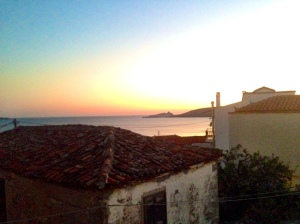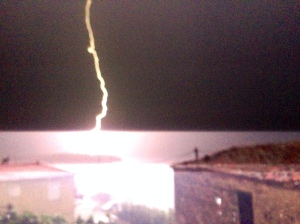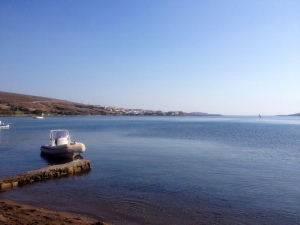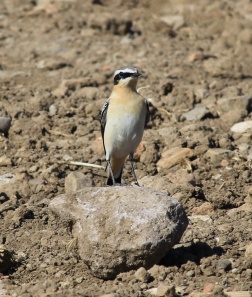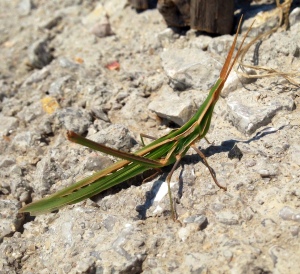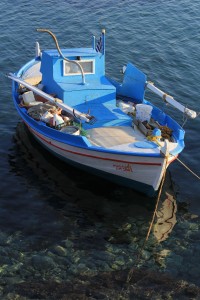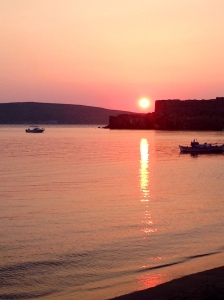The sun descends in a wash of fiery orange and pink while the sea turns violet and lavender, laying itself out in complement to its reflection above. A stillness falls over the bay, the air holding its breath for what is coming next. We have just finished dinner when a few spots of water darken the balcony floor. Looking up I see heavy clouds are covering the stars and then the sky flashes white. The wind picks up and thunder grumbles to the north. The spots become more frequent and there’s barely time to bring in the drying beach towels before the storm is upon us. Bolt after bolt of lightning thrown down from sky to sea, Zeus and Hephaestus battling it out, animating the scene like the flickering images of an old zoetrope. The noise is terrifying, explosions that force the ear drum inwards while the rain rages on. Now the bay is obscured, just a grey sheet of water, a curtain pulled across . I know there are several sailing boats anchored out there, somewhere: half an hour ago there’d been champagne corks and music. I am very glad to be on land, even if the rain is now creeping under the balcony doors and pooling in various and unexpected areas of the apartment. The roads have turned to rivers, pouring down the slope past our window and still there is no diminishment. Occasionally the clouds swirl apart to reveal a pallid, gibbous moon, but she is not invited tonight, rapidly extinguished by their dark bat wings.
Finally, after longer than was diverting, the storm retreats. Rolls of thunder continue and skittering sheets of lightning still illuminate the cloud masses, but they are being pulled apart now, and one by one the stars return.
The next morning, the air is fresh and through the village echoes the sound of water being swept away and neighbours comparing notes on damage and flooding. Some hazy clouds have lingered and at the beach the sea licks contritely at my calves as I wade along the shore.
Later we cycle north up the coast, taking the road that leads inland before turning east back to the sea. Here there are isolated villas with gardens irrigated to a bright verdant green, incongruous against the island’s otherwise terra-cotta landscape.
Wheatears perch on rocks and low electricity lines. Swallows careen across an emerald field of clover, purple flowers just coming into bloom. I stop to investigate but am distracted by a large green stick that hops off the sprig I have plucked. I look closer and see orange eyes and alien forked head, body designed to mimic exactly a large blade of grass. I watch as this small, incredible creature finally tires of my gaze and jumps back into the mass of plants: an instantly invisible phasmid.

